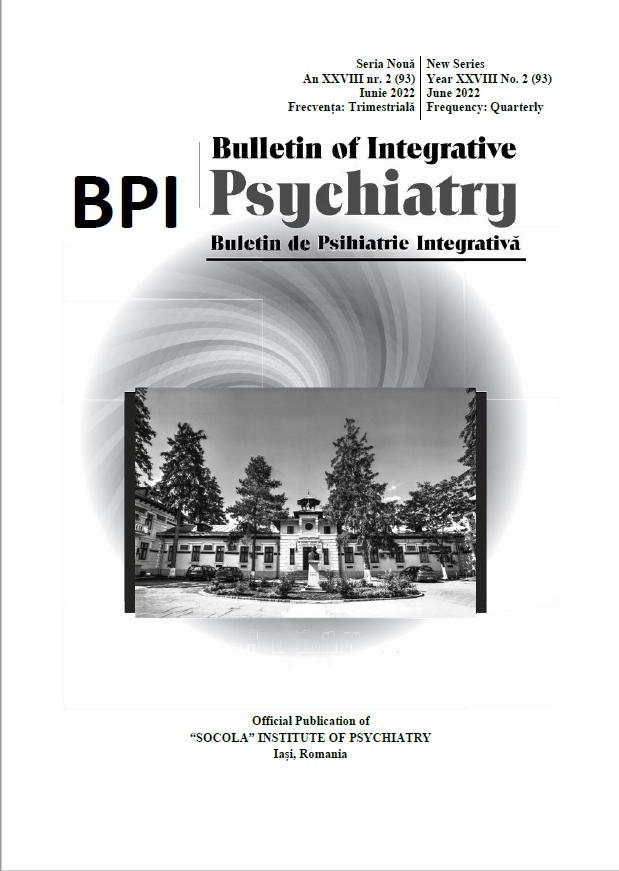Quality of life predictors in patients with Alzheimer's disease dementia
Quality of life predictors in patients with Alzheimer's disease dementia
Author(s): Laura Cristina Doliș, Mihnea Manea, Maria Puiu, Adela Magdalena Ciobanu, Roxana Chirita, Mirela ManeaSubject(s): Essay|Book Review |Scientific Life, Neuropsychology, Health and medicine and law, Family and social welfare
Published by: Editura Sedcom Libris Iasi
Keywords: Alzheimer's; dementia; quality of life; personal and socio-demographic factor;
Summary/Abstract: Objectives: In this study, we set three significant objectives: the first examines possible differences in personal and environmental factors that influence the quality of life experienced by patients with Alzheimer's disease dementia; the second examines differences in quality of life from the patient's and their relatives' perspectives. The third goal is to determine whether personal and socio-demographic characteristics have an impact on the quality of life experienced by Alzheimer's disease dementia patients. Materials and methods: Between March 2018 and April 2019, data were taken from the caregivers of 145 beneficiaries institutionalized in centers for the elderly in Arad County. Assessment tools such as MMSE, Reisberg, Cornell, GAFS, and QOL-AD scales were used. IBM SPSS Statistics Version 22 software (IBM Corp for Windows, Armonk, NY), JASP, and JAMOVI software were used to analyze statistical data. Results: Exact Fisher test results revealed statistical significance for: level of functionality, level of depression, number of interactions, visits, type of institutionalization and fee (F level of functionality = 10,280, F depression in dementia = 18,804, F visits = 16,858, F type institutionalization = 14,496, F tax = 11,136, F interactions = 19,768, p <0.05). The verification of statistically significant differences in the quality of life according to the perspective of the patient and his relatives revealed that this hypothesis is supported by statistical data (U = 5622, p <0.0001).Alzheimer's patients' perceived quality of life is influenced by personal and socio-demographic characteristics. We employed the ordinal form of the research variables for this, and the regression model we developed turned out to be statistically significant (R2 = 0.65, p 0.001).Conclusions: The level of functionality, type of institutionalization, fee, and interactions influence the quality of life.
Journal: Buletin de Psihiatrie Integrativa
- Issue Year: 93/2022
- Issue No: 2
- Page Range: 61-76
- Page Count: 16
- Language: English

